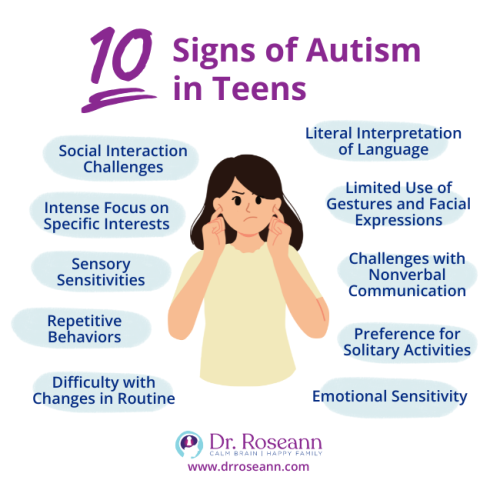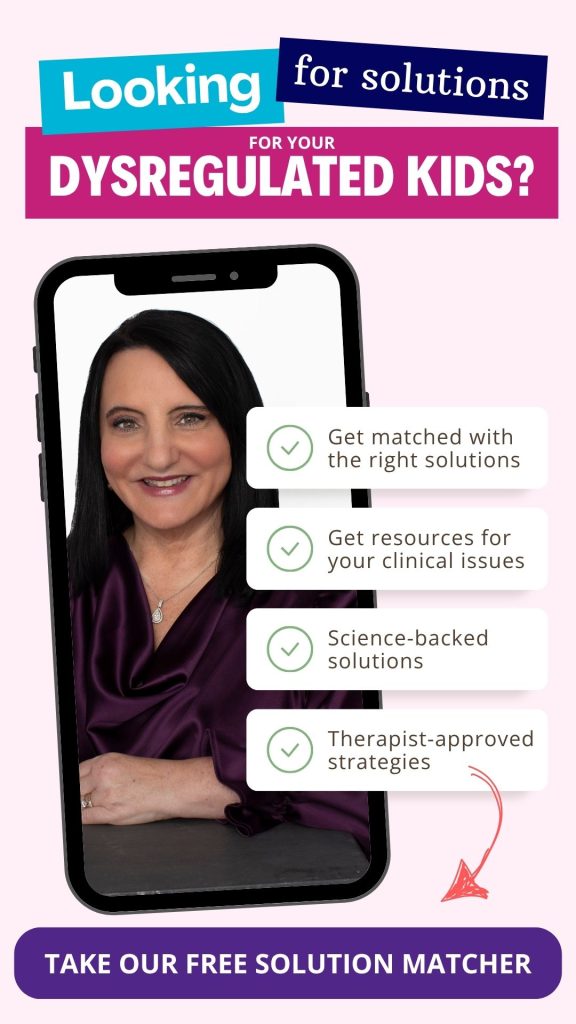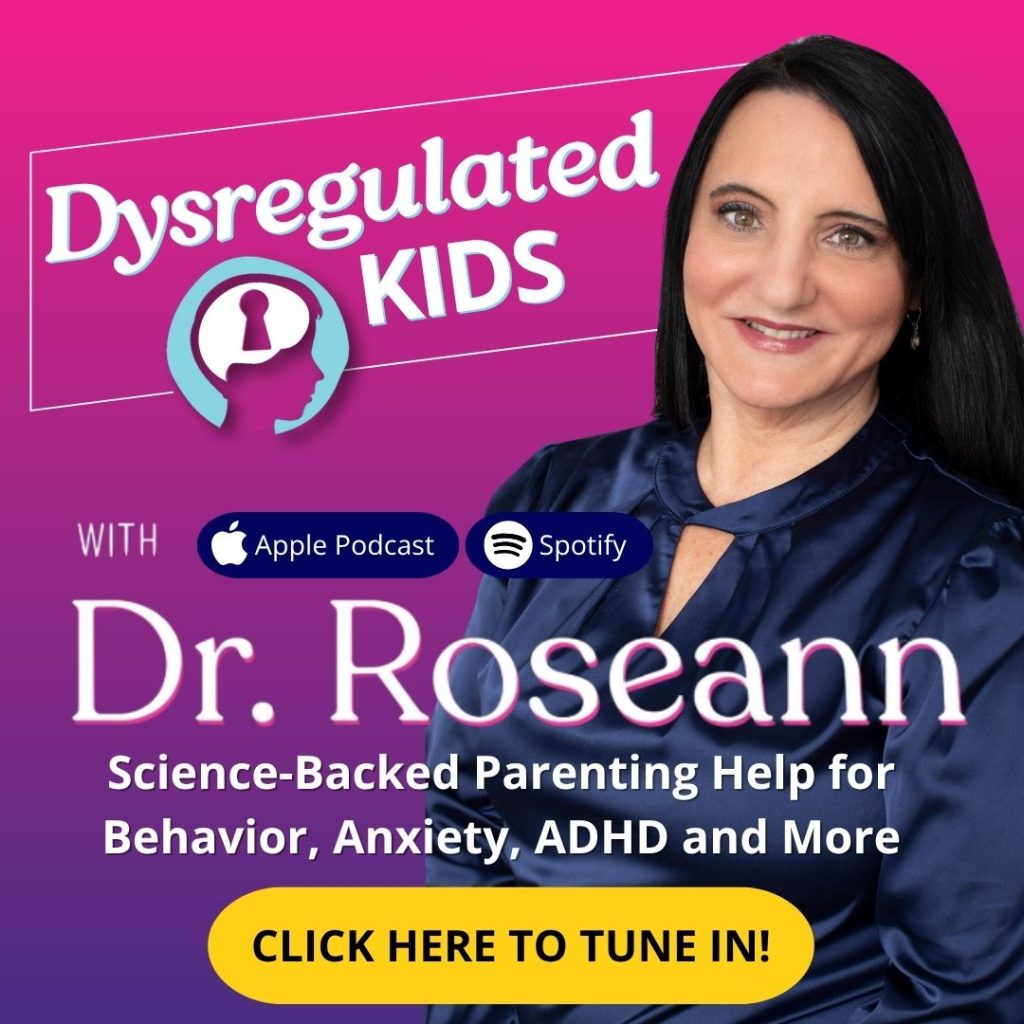Estimated reading time: 7 minutes
Imagine waking up one morning and suddenly realizing that the person sitting across the dinner table—your spirited, smart teenager, feels like a completely different person than they did yesterday. Maybe they’re quieter, more shut down, or unexpectedly overwhelmed by things that used to be no big deal. If that hits close to home, take a deep breath.
You’re not alone and this blog is here for you.
How to Know Your Teenager Has Autism – Signs to Look For
Recognizing teen autism can be challenging, especially since many signs are subtle or masked. Look for:
- Difficulty with social interactions and understanding social cues: Your teen may struggle to interpret body language or sarcasm, leading to misunderstandings with peers.
- Intense focus on specific interests or routines: They might become deeply engrossed in a particular hobby or insist on following a strict daily routine.
- Sensory sensitivities: Overreactions to certain sounds, textures, or lights can be common, making everyday environments overwhelming.
- Challenges in communication: This could include literal interpretation of language, limited eye contact, or difficulty in starting or maintaining conversations.
Every teen is unique. If you notice these signs, consider seeking a professional evaluation.

Can Autism Be Diagnosed In Teens?
Absolutely, it’s never too late. Many teens are diagnosed during adolescence. Early diagnosis can lead to:
- Tailored support strategies: Understanding your teen’s needs allows for personalized interventions.
- Access to therapies and interventions: These can help manage challenges and build on strengths.
- Better understanding of the teen’s needs and strengths: This fosters a supportive environment at home and school.
Don’t hesitate to consult with a healthcare professional if you suspect your teen may be on the autism spectrum.
| Benefit of Teen Autism Diagnosis | Description |
|---|---|
| Tailored Support Strategies | Understanding your teen's needs allows for personalized interventions. |
| Access to Therapies and Interventions | Helps manage challenges and build on strengths. |
| Better Understanding of Needs and Strengths | Fosters a supportive environment at home and school. |
Why Your Teen Seem Fine At School But Melt Down At Home
Masking is when a person hides their true feelings or behaviors to fit in. Teens may mask at school to avoid standing out, leading to:
- Emotional exhaustion: Constantly pretending to be someone they’re not can be draining.
- Increased anxiety: The pressure to conform can heighten stress levels.
- Meltdowns at home: Once they return to a safe space, the built-up emotions may surface.
Understanding this can help in providing the right support at home.

How Puberty Affects Autistic Teens
Puberty brings physical and emotional changes that can be overwhelming for autistic teens. Expect:
- Heightened sensory sensitivities: Changes in hormones can amplify sensitivities to lights, sounds, and textures.
- Increased anxiety or mood swings: The emotional rollercoaster of adolescence can be more intense.
- Challenges with body image and self-care routines: Navigating changes in their body can be confusing and distressing.
Providing clear information and support during this time is crucial.
How To Help Your Teen Make Friends And Manage Social Life
Social interactions can be challenging. Encourage:
- Participation in structured social activities: Clubs or groups with clear rules can provide a comfortable setting.
- Role-playing social scenarios: Practicing common interactions can build confidence.
- Open discussions about friendships and feelings: This helps your teen understand and navigate social dynamics.
Patience and understanding go a long way in helping your teen build meaningful relationships.
School Supports and Strategies That Help in High School
High school can be demanding. Ensure your teen has:
- An Individualized Education Plan (IEP) or 504 Plan: These legal documents outline specific accommodations and services.
- Access to accommodations: This might include extended test time, quiet spaces, or note-takers.
- Support from teachers and counselors: Having a team that understands autism can make a significant difference.
Advocating for these supports can help your teen succeed academically and socially.
Therapies and Practical Tools To Start With
Starting with evidence-based therapies can be beneficial. Consider:
- Cognitive Behavioral Therapy (CBT): This can help manage anxiety and develop coping strategies.
- Occupational Therapy (OT): OT can assist with sensory processing issues and daily living skills.
- Speech and Language Therapy: This can improve communication skills and social interactions.
Read more about: A Nervous System Approach to Autism Treatment: What Every Parent Needs to Know
Consult with professionals to determine the best approach for your teen.
FAQs
How do I know if my teen is masking their autism?
Look for signs such as exhaustion after social activities, sudden meltdowns at home, or your teen explaining that they “have to act normal” around others.
Can autism be diagnosed in teenagers?
Yes, it’s never too late. Many teens receive diagnoses during adolescence, which opens doors to tailored support, therapies, and school accommodations.
What should I do if I suspect my teen has autism?
Start by documenting observed behaviors, communicate concerns with your teen, and consult a qualified healthcare professional for a formal evaluation.
How can I help my teen manage anxiety and stress?
Provide predictable routines, safe spaces for decompression, and evidence-based strategies such as CBT, mindfulness, or sensory supports recommended by professionals.
Are school accommodations really necessary?
Yes. IEPs or 504 Plans provide essential tools and supports that help your teen succeed academically and socially while reducing stress and sensory overload.
Citations
Bargiela, S., Steward, R., & Mandy, W. (2016). The experiences of late-diagnosed women with autism Spectrum conditions: An investigation of the female autism phenotype. Journal of Autism and Developmental Disorders, 46(10), 3281–3294. https://doi.org/10.1007/s10803-016-2872-
Hull, L., Petrides, K. V., & Mandy, W. (2020). The female autism phenotype and camouflaging: A narrative review. Journal of Autism and Developmental Disorders, 50(3), 306–317. https://doi.org/10.1007/s40489-020-00197-9
Cremone, I. M., et al. (2023). Measuring social camouflaging in individuals with high-functioning autism: A review of available methods and their correlates. Brain Sciences, 13(3), 469. https://doi.org/10.3390/brainsci13030469
Dr. Roseann Capanna-Hodge is a licensed mental health expert that is frequently cited in the media:
- Parents Are Your Kid’s Meltdowns a Sign of Rejection Sensitive Dysphoria?
- Scary Mommy What Is Self-Regulation In Children, And How Can You Help Improve It?
- Medicinal Media Different minds grow awareness: understanding the autism spectrum
Disclaimer: This article is not intended to give health advice and it is recommended to consult with a physician before beginning any new wellness regime. *The effectiveness of diagnosis and treatment vary by patient and condition. Dr. Roseann Capanna-Hodge, LLC does not guarantee certain results.
Are you looking for SOLUTIONS for your struggling child or teen?
Dr. Roseann and her team are all about science-backed solutions, so you are in the right place!
©Roseann Capanna-Hodge










